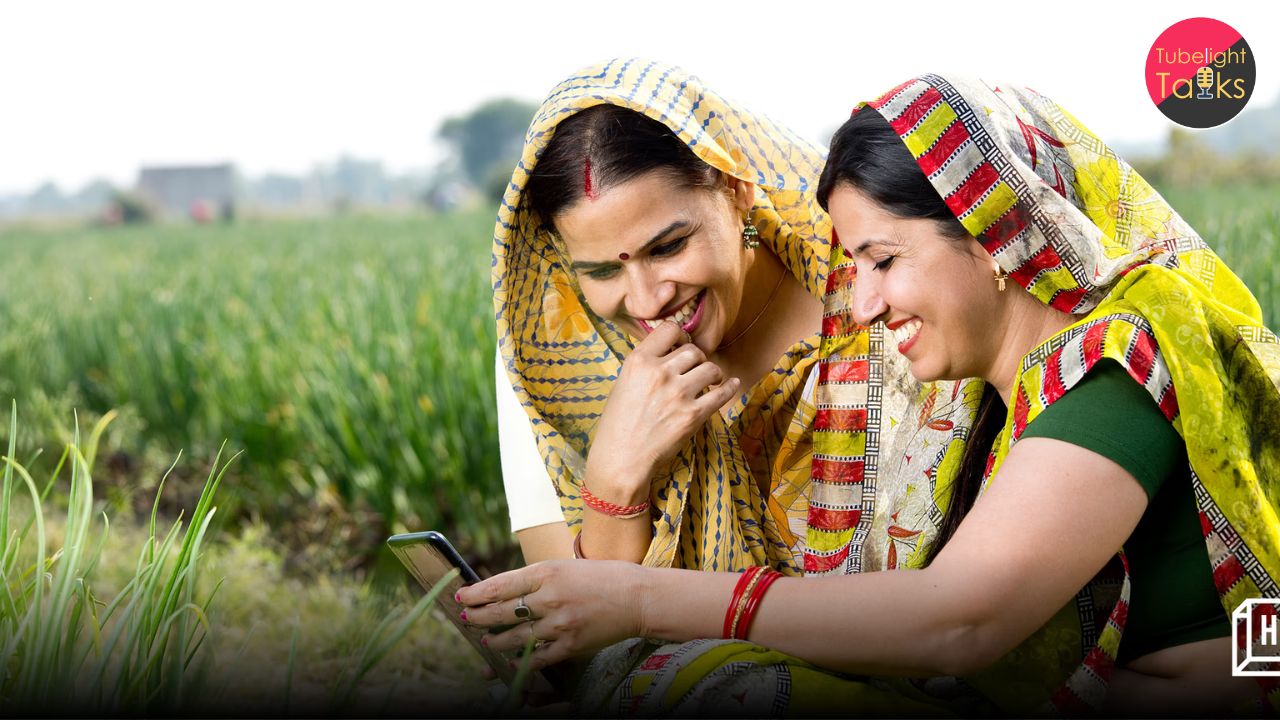Women in Agriculture: The Rise of Rural Agri-Entrepreneurs
Agriculture is a crucial sector for human survival. Women’s contributions to agriculture and agribusinesses are undeniable. They play a vital role in farming, whether on small or large farms, producing food for their households, communities, and beyond.
However, despite their contributions, women face numerous challenges, including social, cultural, traditional, and gender-based barriers.
This paper focuses on the role of women in agriculture and rural agri-entrepreneurship. It also discusses the challenges and opportunities for women in this field.
The Role of Women in Agriculture
Agriculture is essential for human survival and economic development. It fulfills basic human needs such as food, shelter, and clothing while also supporting various aspects of daily life. Women serve as the backbone of agriculture, participating in diverse farm activities such as crop production, livestock management, forestry, agroforestry, and apiculture.
In addition to agricultural work, women play a crucial role in managing households. Their caring and nurturing nature makes them the foundation of families and communities.
Challenges Faced by Women in Rural Agri-Entrepreneurship
- Limited Access to Resources – Women often struggle to access land, water, and quality seeds, limiting their productivity and income potential.
- Cultural and Traditional Barriers – Social norms and traditions often prevent women from participating in decision-making in agricultural enterprises.
- Unequal Pay and Limited Education – Women frequently receive lower wages than men and have limited access to education and training.
- Small Land Holdings – Women generally own or inherit less land, restricting their ability to scale their agricultural businesses.
- Balancing Household Responsibilities – Women often juggle agricultural work with household chores and childcare, making entrepreneurship overwhelming.
- Limited Access to Credit and Markets – Financial constraints and market access issues hinder women’s ability to expand their agribusinesses.
- Lack of Technological Access – Without access to modern agricultural tools and technology, women face challenges in improving productivity.
- Market Barriers – Gender-based discrimination, limited mobility, and lack of information make it difficult for women to access profitable markets.
- Gender-Based Violence – Women in agriculture are at risk of gender-based violence, including harassment, assault, and exploitation. Protecting their rights and ensuring their safety is essential for their success in agri-entrepreneurship.
Approaches to Empower Women in Agriculture
- Providing education and training on rural agri-entrepreneurship.
- Promoting gender equity and protecting women’s rights.
- Securing women’s land rights.
- Offering financial services and credit access.
- Providing market information and advanced agricultural technologies.
Self-Help Groups (SHGs) and Their Role in Agriculture
What are SHGs?
Self-Help Groups (SHGs) are small, voluntary groups, often consisting of women, who come together to save money and engage in income-generating activities, including agriculture.
- SHGs are informal groups formed by individuals with shared socioeconomic goals.
- They engage in mutual lending, continuous savings, and voluntary membership.
- SHGs empower women socially and economically, helping them improve their livelihoods.
SHGs in Agriculture
- SHGs provide women with access to credit, information, and training.
- They help members acquire quality agricultural resources such as seeds, fertilizers, and irrigation facilities.
- SHGs assist women in securing better prices for their agricultural produce.
Training Programs for Women in Rural Agriculture
In India, various organizations and government initiatives offer specialized training programs to enhance women’s agribusiness skills. These programs promote sustainable agricultural development by training women in areas such as poultry management, organic farming, vermicomposting, and apiculture.
Also Read: Precision Agriculture in India: Technology-Driven Farming for a Sustainable Future
Government Initiatives and Organizations Supporting Women in Agriculture
- ICAR – Central Institute for Women in Agriculture (ICAR-CIWA) – Conducts capacity-building programs for women farmers and addresses their challenges.
- Krishi Vigyan Kendras (KVKs) – Organizes special training programs for women in technology assessment and capacity development.
- Agriculture Skill Development Training Programs for Women – Initiated by the Government of Gujarat, this program provides women with agricultural training.
- Mahila Kisan Sashaktikaran Pariyojana (MKSP) – A component of the National Rural Livelihood Mission (NRLM) that supports women farmers.
- ICAR – Indian Agricultural Research Institute (ICAR-IARI) – Conducts training programs on organic farming for women.
- Institute of Horticulture Technology (IHT) – Provides specialized horticulture training for women in agriculture.
The Role of Satgyan by Sant Rampal Ji Maharaj in Empowering Society
Sant Rampal Ji Maharaj, through His spiritual teachings based on Satgyan (True Knowledge), reveals the hidden truths of religious scriptures and guides people toward salvation through devotion to Supreme God Kabir Sahib. His teachings challenge blind rituals, casteism, and outdated traditions that suppress women’s growth.
By promoting unity, discipline, non-violence, and self-purification, Satgyan has inspired countless women to rise above social barriers, pursue education, lead SHGs, and start agri-businesses with confidence and spiritual clarity.
Conclusion
Women’s contributions to rural agri-entrepreneurship are vital for sustainable development and food security. Empowering women in agriculture through gender equity, education, access to resources, and financial inclusion is essential. By promoting their participation in agribusinesses, societies can ensure economic growth and improved livelihoods.
FAQs About Women in Agriculture
1. What is the role of women entrepreneurs in agriculture?
Women entrepreneurs contribute to rural economic development by creating job opportunities and improving agricultural productivity.
2. Who is India’s first woman entrepreneur?
Kalpana Saroj is considered India’s first woman entrepreneur.
3. What is rural and women entrepreneurship development?
Women-owned rural enterprises employ 22–27 million people despite facing multiple barriers. Rural and women entrepreneurship development refers to initiatives that support and promote female-led rural businesses.
4. What challenges do women face in rural agri-entrepreneurship?
Challenges include gender-based violence, lack of market access, limited technological knowledge, inadequate training programs, small land holdings, lack of land ownership, and poor access to quality education.
5. What are SHGs?
Self-Help Groups (SHGs) are small groups of individuals, usually from underprivileged backgrounds, who come together to support each other financially and socially.











Discussion (0)